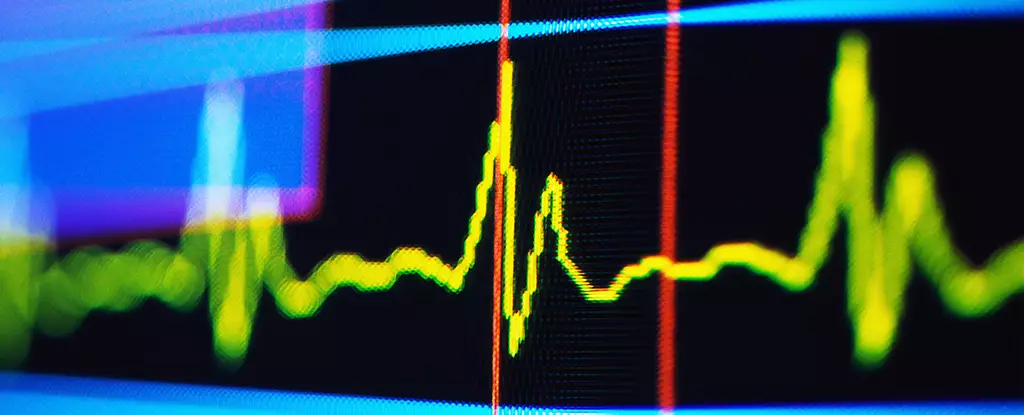In an era where the quest for early detection of cognitive decline is more pressing than ever, recent research offers a groundbreaking perspective on how something as mundane as a pulse rate could illuminate the path to understanding our brain’s health. This study, involving over 500 seniors, provides a provocative assertion: pulse rate variations may serve as an early warning system for cognitive deterioration. What could be more urgent and valuable than finding a swift, nonintrusive way to gauge mental wellness, especially as we confront an aging population with burgeoning rates of cognitive disorders?
Researchers have begun urging us to reconsider the conventional wisdom surrounding heart health and its indirect connections to cognitive function. The crux of their findings suggests that the complexity of pulse rate fluctuations—the intricate dance of variability throughout a night’s sleep—holds predictive power for cognitive decline in years to come. Imagine a future where a simple test could arm both individuals and healthcare providers with the foresight to intervene with innovative treatments and personalized support systems. This kind of advancement is not just inspiring; it borders on revolutionary.
Understanding Pulse Rate Complexity: A New Frontier in Health Monitoring
The researchers utilized an innovative statistical model known as “distribution entropy” to analyze the pulse data of participants, aged 82 on average, collected during a sleep cycle. This methodology dug deeper than traditional heart rate measurements, revealing that the adaptability of heart rhythms plays a critical role in cognitive health. The study highlights an astonishing revelation: individuals exhibiting greater complexity in their pulse rates were less likely to experience significant cognitive deterioration over time. Conversely, those showing reduced heart complexity faced an accelerated decline.
Such findings beckon us to rethink our understanding of health monitoring. If a heart can adapt nimbly to internal and external stimuli—a hallmark of vibrant physiology—doesn’t that say much about the overall well-being of the individual? The notion that a well-functioning heart could be a front-line indicator of cognitive health challenges long-held beliefs that compartmentalize the body and the mind. This interplay of dynamics elegantly underscores the importance of a holistic approach to health.
Bringing Heart and Mind Together: A Call for Further Research
There’s a noticeable urgency for subsequent studies to explore not just the connections highlighted in this research but also the underlying biological mechanisms at play. The study’s lead authors emphasize a need to investigate whether pulse complexity may predict the onset of neurodegenerative disorders like dementia, which could be a game-changer in preventative healthcare. The accessibility of this measure can shift our healthcare narrative from reactive to proactive, a transition long overdue in our aging societies.
As promising as these findings are, we must navigate this new frontier with caution. High hopes should not outweigh the need for comprehensive studies. We must ask ourselves: how extensively can pulse rate complexity predict cognitive issues? Can we harness this newfound knowledge in practical applications, such as wearable technology that provides real-time health metrics? The path to such advances teems with potential—if only we are willing to pursue it vigorously, integrating interdisciplinary expertise while advocating for research funding.
Caution and Optimism: The Dual Edge of Innovation
While embracing these insights and their implications for preventative measures, we must remain critically aware of the limitations inherent in emerging research. Previous cardiac studies struggled to connect traditional assessments of heart rate to cognitive outcomes, suggesting that we tread with a blend of caution and optimism. This active discourse will ultimately refine our understanding and application of such innovations.
Moreover, the epidemiological and ethical nuances involved necessitate a thoughtful inquiry into how we might safeguard individual privacy and autonomy when implementing new monitoring technologies. It is imperative that we harness such advancements in ways that prioritize patient dignity and informed consent, rather than reducing individuals to merely their health metrics.
The fusion of cardiology and neurology propelled by these trends presents a thrilling, albeit intricate landscape. As we stand at the precipice of a broader understanding of how our heart rates reflect cognitive health, let us commit to fostering inclusive dialogue surrounding these developments, ensuring that science serves humanity in the most compassionate and beneficial manner possible.


Leave a Reply